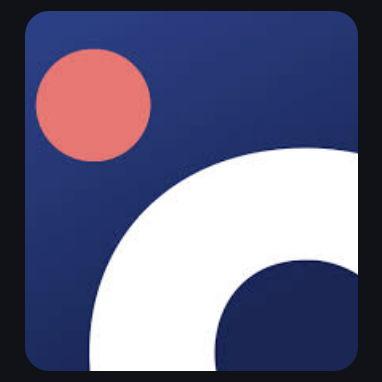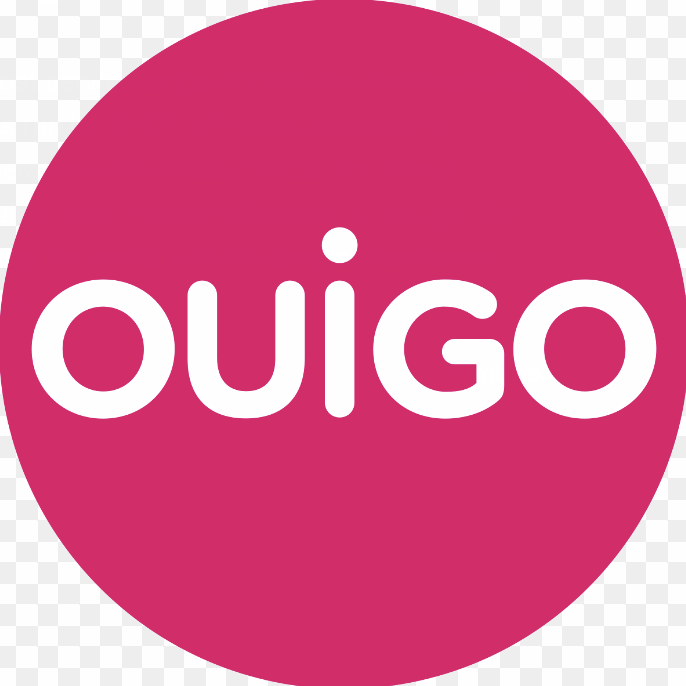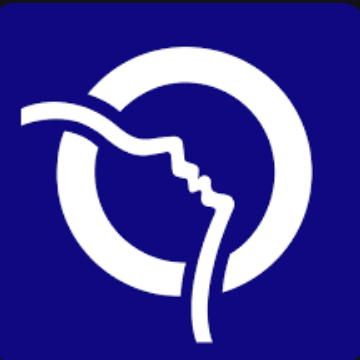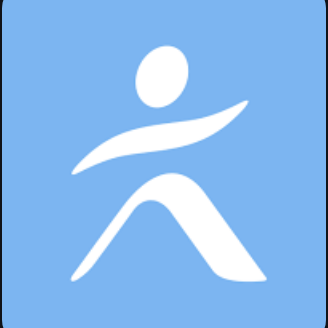Mindy & Adam
Helpful Apps/Tips

Omio
Travel Booking App
Omio is a travel booking platform that allows users to compare and book tickets for flights, buses, trains, and ferries across Europe, the United States, and Canada

Ouigo
Train Booking App
Ouigo is a free, 100% digital app that allows users to book and manage low-cost train tickets from SNCF, the French national railway company, for travel in France and Spain, offering features like finding and booking trips, choosing seats and extras, and managing reservations.

Bonjour RATP
Travel app for navigating Paris
Bonjour RATP a free travel app for navigating Paris and the Île-de-France region, offering information on metro, bus, train schedules, maps, itineraries, disruption alerts, and ticket purchases, as well as bike and scooter rentals. Helpful if you're looking to fly into Paris and spend a few days (similar to the MTA for you New Yorkers).

IDF Mobilities
Metro ticketing app for Paris region
Another helpful Paris area app, with IDF Mobilities you can purchase a digital ticket, recharge your Navigo pass, search for routes including trains, RERs, metros, trams, buses, coaches, bicycles, Vélib', car-sharing, or car rentals.
TIPS FROM AN AMERICAN IN PARIS
Intro
Hello everyone! As you make plans for travel, we have the benefit of having a wedding guest and long-time friend who is a "local". She is happy to answer questions and offer advice if she can with your travel planning. Her name is Erin Colston and you can email her at: director@actparis.com (She runs a theater school). She has offered some general advice here for everyone, to start you off. Scroll down, use what's helpful! Hi all! I'm Erin, friend of Mindy for about 24 years from her New York life and I've been in France for 16 years and traveled a lot around and within France (and Europe), by train, plane, boat and car. I'm a Parisienne most of the time but love getting out of the city. Looking forward to meeting all of you! Don't hesitate to email me with any mire specific questions and ill help or try to direct you towards good resources if I can! General/ language: Learn a few basic phrases: "Bonjour/Bonsoir", "Merci", "Pardon", and "Parlez-vous anglais?". In Paris most people speak a little English but the further away you get, the less it is guaranteed. People will be nicer to you if they see you make at least a little effort!
Culture lessons
Culture lesson #1
Culture lesson one: In France, shops and restaurants used to be below the owners' home, or part of their residence. Therefore, the tradition is that when you enter an establishment, you should greet staff first because they are allowing you into their home. In America we are used to the staff greeting us first, and so by not doing this simple thing we are immediately considered "rude" by whomever you will deal with in the shop, restaurant, etc. Say "Bonjour" to whomever you see upon immediately entering and you will get much kinder responses, they will be more willing to help and not thinking "Ugh, more rude Americans" 😂. "Bonsoir" is for evening, usually past 6pm. "Bonne nuit" is only to say goodnight to someone (as in before sleeping, and is more intimate, not to be used with strangers or taxi drivers, etc. ). *"Pardon" is what is said to interrupt, or if you bump someone, or need to get someone's attention, or need to pass them, etc. (not excusez-moi as is often taught in French class ).
CULTURE LESSONS
Culture Lesson #2
Culture lesson two: the French are taught a lot more self- focused view of the world. They are not drilled from children to "wait in line", "wait your turn", "let others go first" etc. as much as Americans (or Brits). In a grocery store if a new lane opens it’s "whoever gets there first" and not "who was waiting longest". They don't see this as "rude" like we do, it's just their way of always functioning. French students learn philosophy from as young as elementary and their thoughts, their opinions, their minds are considered very important and that creates a different view on the world. However- the French can also be very kind and friendly! They will offer you lots of help and suggestions if you are kind and polite, and love a good conversation (especially over wine!). Most of them have an interest in/curiosity about America from films and TV, and many will be happy to "practice their English" on you 😂
Airport Tips
Flying into CDG
- Arriving at CDG: the airport is laid out as big oval (terminal 2, where most arrivals and departures happen). If you are at one side and need to go to the other, there are some passageways that connect underneath but don't have the best signage, you must look for them (or walk all the way around). -There are info booths at intervals with English speaking helpers (in orange, I believe). - The trains into Paris are quite efficient if you don't have too much luggage - line B (blue line) will take you straight down into the center and save a lot of money!
Safety tips
Don't be a target!
Safety: - In the city or crowded places, carry a cross-body bag and keep zippers in front of you where you can see them, or flip backpack to the front. It is not recommended to carry valuables in open pockets. - Don't bring phones out in crowded places like trains if someone can come up behind you (that's a popular pickpocket thing, grabbing your phone from over your shoulder when you are not paying attention). Phone "leashes" or wristbands are a good safety hack for this. Make yourself a difficult target and they will leave you alone - they are looking for people who aren't paying attention. - Don't sign any petitions, or stop to talk to someone who "found a lost thing" (usually a ring) by tourist sites - again, these are scams run by groups of highly organized people. If someone approaches you with a clipboard, just say "no". Paris isn't dangerous but you must be aware. (These scams can also happen in other big tourist spots or big cities around Europe). Don't make yourself an easy target and you'll be fine!
Car Rentals/Driving
Driving like the French...
The most important driving rule to know: "Priorité a droit" which means "priority is to the right". This means that ANYONE coming from your right side has priority- even if you are on the "through way" and they are on a small side street. -Motorcycles and scooters are very prevalent, especially in the city, and think rules don't apply to them (so be aware). -The French love a roundabout! In some towns you will find these at every intersection instead of a stoplight. This is one case where the priority is not "a droit" but to the vehicle already in the roundabout. However, you must be brave and take the opening when you see one! Don't be too polite or you could sit there forever. -GPS is essential! The signage isn't always clear or great on French roads so make sure you have a GPS and pay attention to what lane to be in for exits- the French highways rely on loops and turnarounds, not over-or-underpasses, and it can get confusing. - DO NOT SPEED. Most highways have automatic radar. You will get a ticket, there is no fighting it, and the rental company will chase you down for payment. Most rental cars have warnings on the dashboard about the speed. (Only locals who know exactly where radars are can get away with speeding.) - Most cities and towns have paid parking but no meters (or fewer and fewer, they are being removed)- it's all through an app now. Download "Pay by Phone" from your app store. (It has a square made of 9 smaller green squares as the symbol).
French Time
These people take breaks!
"French Time": Summer is the slow time in France. People work as little as possible and spend evenings at outdoor cafes or picnicking. *Note that July 14th is a national holiday: if you are staying through then, be prepared for most things to be closed (shops, museums etc.) Necessities : The French don't do "24 hour" shops like we do, except a rare small convenience shop in Paris. Plan that grocery stores close at 9 or 10 in Paris and earlier outside the city (like 8pm). You won't find even "over the counter" drugs in grocery stores, only pharmacies. Most close early but there are some which stay open 24 hours, usually based on population, so outside Paris they are few far between. You can find this information online. Many shops are closed Sundays. It is still viewed as a day of rest. Many also close for lunch. (Banks, small local shops). Some restaurants close from 2pm to 7pm. (They don't do dinner as early here as in the states). Plan ahead, look up operational hours so you don't waste time and effort, or find you are hungry with nothing open! Otherwise, For more specific questions, feel free to message me: director@actparis.com. I'm in a quite busy period through June 9th so might not respond immediately but I'll do my best (my students are at competition and show season). If you plan to stop on Paris awhile before or after the wedding i can give restaurant recommendations or more specific "local" suggestions. See you in July!